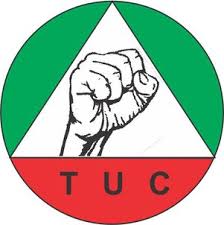The Trade Union Congress (TUC) is urging the Central Bank of Nigeria (CBN) and the Nigeria Customs Service (NCS) to provide a special foreign exchange rate for the Nigerian National Petroleum Company Limited (NNPCL).
The TUC argues that if NNPCL is granted a preferential forex rate of approximately ₦1,000/$1—compared to the current official rate of ₦1,600/$1—fuel importation costs would decrease significantly.
This adjustment could potentially lower petrol prices from over ₦900 per liter to around ₦600, depending on the region.
TUC President Festus Osifo made these comments during a Monday appearance on Channels Television’s Politics Today.
Osifo, who also leads the Petroleum and Natural Gas Senior Staff Association of Nigeria (PENGASSAN), criticized the current administration’s handling of the naira’s devaluation rather than the removal of the petrol subsidy in May 2023 by President Bola Tinubu.
“The major issue is the devaluation of the naira,” Osifo explained. “If the naira hadn’t depreciated alongside the subsidy removal last year, petrol prices would be around ₦350 per liter instead of the current rate.”
Despite recent increases in petrol prices—from roughly ₦600 to over ₦900—the TUC leader claimed that NNPCL continues to bear the cost of the subsidy.

Osifo proposed that granting a special forex rate to NNPCL would eliminate the need for subsidies. He compared this to the preferential rate given to Dangote Refinery. “The Customs have previously provided special rates; a similar rate should be applied here,” he said.
He also suggested that allowing crude oil sales to Dangote in naira at a rate of ₦1,000/$1 could enable marketers to sell petrol at lower prices.
Osifo warned that without immediate government action, the recent petrol price hikes could lead to widespread economic repercussions, including job losses and business closures.
This concern is echoed by industry groups such as the Nigerian Association of Chambers of Commerce, Industry, Mines and Agriculture (NACCIMA), the Lagos Chamber of Commerce and Industry (LCCI), and the Nigerian Employers Consultative Association (NECA).
The TUC plans to convene its organs to determine the next steps if the government does not address the issue and reduce petrol prices to approximately ₦600.




